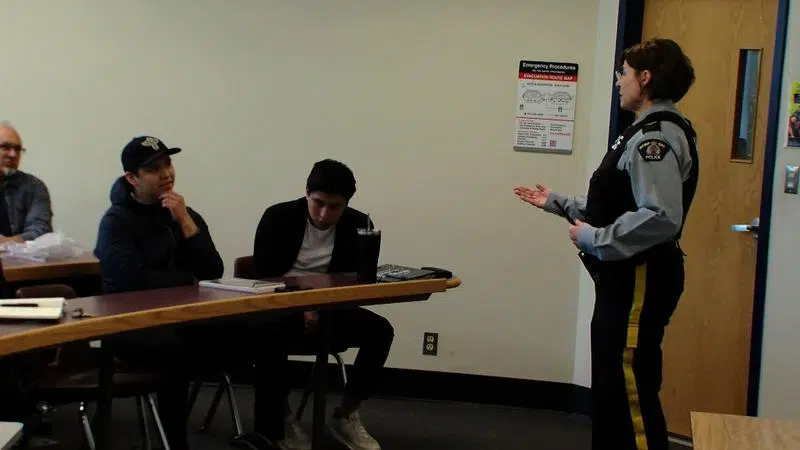
Kamloops RCMP engage with post-secondary students on the subject of pipeline protests
KAMLOOPS — It’s a complicated issue, with no clear solution. The conflict between the Wet’suwet’en and Coastal GasLink has now spilled far beyond the path of the pipeline, grinding rail traffic to a halt and exposing some severe gaps between how politicians speak about Indigenous reconciliation and how they practice it.
Tuesday (Feb. 26) at TRU, Kamloops RCMP spokesperson Cpl. Jodi Shelkie visited a political science class. She undertook the difficult task of explaining and answering questions about the role of the RCMP when dealing with protests, like the many currently taking place across Canada.
“The order that [RCMP] put our priorities down are that we are impartial, we’re there to protect the rights of people — either protesters or the people or companies to go to work — then thirdly, we will enforce the laws of Canada,” Shelkie told students.


